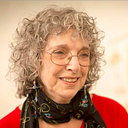I am trying very hard to understand your anger. You seem angry that I reported fairly, although, to be honest, Iam not quite sure what “side” you would have perferred I came down on.
I do not disagree with you, and never claimed, hinted, implied or suggested, that the Barretts in any way “caused” or “profited” from the long-standing problems in Haiti or the earthquake, or even the missionaries coming in and exploiting the situation.
The paragraph you quote merely states the fact that there have been a multitude of articles attacking so-called” “attacks” from the “left” on Barrett’s Haitian adoption. Just one example of many, from the right wing Daily Signal, is this headline: “How Low Can Far Left Go? Attacks on Barrett for Adopting Haitian Orphans Hit Rock Bottom” — a title that speaks for itself. It is these critics who have chosen to politicize the situation, not me.
The opening paragraph you refer to is dead-on accurate. It is the viral backlash which has tried to make identifying the problems inherent in transracial adoption political, when it is not at all. It is they who accuse “leftists” of attacking Barrett - an absurd argument when leftists are equal participnats in the same practice as the Barretts (as my article points out).
In my 40 years researching adoption, one thing I can assure you: Both the “left” and the “right” are equally pro-adoption and equally take part in the so-called” “rescue” of children in need. The article, in fact, gives examples of celebrities, many label leftist, and states that many use transracial adoption as “a badge of liberalism.” I conclude by saying “This is not political.”
The Wall Street Journal asked: “Why don’t the critics of interracial adoption ask Vivian and John Peter if they would prefer being malnourished in Haiti to being members of the Barrett family?”
First of all, the children Barrett, or anyone else adopts, from Haiti or anywhere else are never asked or given a choice if they’d rather leave everything they’ve ever known, leave their family, the siblings they have and those they may continue to have — peerhaps to neve rbeen seen ever again — in exchange for material advantages and a new life somewhere foreign to them. A life that is not guaranteed to be more loving or free or hardship or abuse, and not even guaranteed to be “forever.” Why should any child be made to choose between the devil and the deep blue sea and live with survivor’s guilt for those left behind?
Why can’t those who care about such children in need, provide them — and their families — what they need where they are? Why not send care packages or donate to UNICEF or Haitian relief or orphanages? There are myriad such opportunities.
Secondly, I present many quotes from people who have walked a mile in the shoes of Barrett’s children and who express the pain of living as a sore thumb in a family photo — or amongst an entire community of people who don’t look like them. Many transracial adoptees experience painful bias.
I also quote — at great length — Paula Fitzgibbons, who walked in the shoes of the Barretts, adopting from Haiti, and who graphically details the horriffic ways her peers and the “professionals” in that process spoke about the children of Haiti with enormous racial and ethnic contempt, calling them “savages.”
Contrary to your vitriol and accusations, I was, in fact very fair in presenting the facts.
In the second and third paragraphs — immediately following the one you quote — I describe child laundering — a process that makes it extremely difficult to impossible to trace the roots of many of these child victims and I use the word “unknowingly” to describe adopters who unintentionally, unwittingly adopt children who are found to have been stolen, kidnapped and trafficked, among them my friends and colleagues, the Smolins. I never blamed the Barretts but in fact painted them and all adopters as victims as well.
I stand by every word I wrote. I was fair and objective. When you become an expert on transracial adoption — either as a researcher, professional in the field of child welfare, or via life experience, then speak to me and what I have written.
Mirah Riben
